
News • COVID-19
Thai hospitals deploy 'ninja robots' to aid virus battle
The hospitals are deploying "ninja robots" to measure fevers and protect the health of overburdened medical workers on the frontlines of the coronavirus outbreak.

The hospitals are deploying "ninja robots" to measure fevers and protect the health of overburdened medical workers on the frontlines of the coronavirus outbreak.
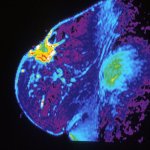
If chromosomes are unevenly distributed or otherwise altered during cell division, this normally damages the daughter cells and impairs their viability. Not in cancer cells, however, in which chromosome instability can actually confer a growth advantage under certain circumstances. Moreover, as scientists from the German Cancer Research Center have now demonstrated in mice, changes in the…

The U.S. Food and Drug Administration (FDA) has granted 510(k) approval to Fresenius Medical Care North America and Xenios, a Fresenius Medical Care company, for long-term use of its Novalung system for patients with acute lung failure or acute cardiopulmonary failure.
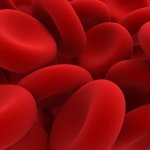
Within the framework of an international study, Lund University and Skåne University Hospital have started treating patients with hemophilia with gene therapy, something that began in January this year. The hope is that the new treatment will significantly simplify everyday life for those with severe hemophilia. Hemophilia is a genetic disease where the body does not produce one of the clotting…
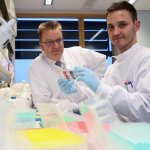
Researchers at Cardiff University have discovered a new type of killer T-cell that offers hope of a “one-size-fits-all” cancer therapy. T-cell therapies for cancer - where immune cells are removed, modified and returned to the patient’s blood to seek and destroy cancer cells - are the latest paradigm in cancer treatments. The most widely-used therapy, known as CAR-T, is personalised to each…
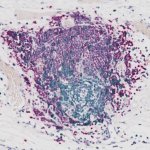
How can the treatment of soft tissue sarcomas, these particularly resistant and aggressive forms of cancer, be improved and better personalized? An international team led by Wolf Hervé Fridman with researchers from Inserm, Sorbonne Université and Université de Paris at the Cordeliers Research Center, in collaboration with the French League against cancer and Institut Bergonié, has shown that…
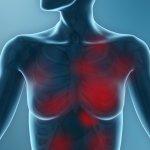
The updated guideline for estrogen and progesterone receptor (ER/PgR) testing in breast cancer, published jointly by the College of American Pathologists (CAP) and the American Society of Clinical Oncology (ASCO), reaffirms much of the original guidance and has more specific recommendations for handling and reporting cases with low ER expression. Globally, more than 1 million women are diagnosed…
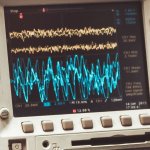
Doctors have used focused ultrasound to destroy tumors in the body without invasive surgery for some time. However, the therapeutic ultrasound used in clinics today indiscriminately damages cancer and healthy cells alike. Most forms of ultrasound-based therapies either use high-intensity beams to heat and destroy cells or special contrast agents that are injected prior to ultrasound, which can…

An enthralling insight into the care that could be offered to cancer patients of the future was presented by cancer imaging expert Professor Regina Beets-Tan during her a keynote presentation at the recent British Institute of Radiology congress. In the session ‘Oncologic imaging: Future perspectives’, the professor outlined what a Multi-Disciplinary Team (MDT) of the future – a team in…
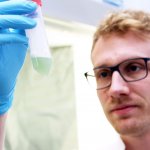
Antibiotic-resistant pathogens pose one of the greatest threats to public health worldwide. In the near future, harmless bacterial infections may no longer be treatable and may again become the most common non-natural cause of death. At the same time, the available repertoire of antibacterial agents is becoming increasingly smaller as resistance rates rise.

Artificial intelligence (AI) opens up a host of new diagnostic methods and treatments. Almost daily we read about physicians, researchers or companies that are developing an AI system to identify malignant lesions or dangerous cardiac patterns, or that can personalise healthcare. ‘Currently, we are too focused on the topic,’ observes Professor Christian Johner, of the Johner Institute for…

Obesity not only means someone is overweight but, over time, they will probably suffer sequelae that increasingly impair quality of life and are potentially fatal – these include hypertension, coronary heart disease, type two diabetes, pulmonary function disorders, tumours, plus an increased risk during surgery and anaesthesia. In patients with morbid obesity, class three obesity, according to…
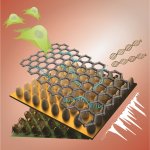
Researchers have created better biosensor technology that may help lead to safe stem cell therapies for treating Alzheimer’s and Parkinson’s diseases and other neurological disorders.
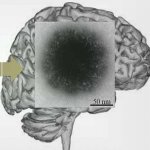
For the first time, scientists have found a way that can effectively transport medication into the brain - which could lead to improved treatments for neurological and neurodegenerative diseases. In a study, scientists from Newcastle University have led an international team in a major breakthrough in unlocking the secrets of how medications can infiltrate the brain.
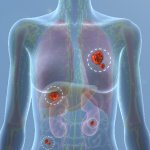
Breast cancer is rare for women under 40. So, a breast cancer diagnosis can be shocking news for a young woman to hear. “Breast cancer in young women can have its own risk factors and traits, and young women have their own considerations when deciding on a treatment,” says Nadine Tung, MD, head of breast medical oncology and cancer genetics at Beth Israel Deaconess Medical Center (BIDMC).…
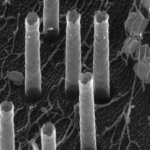
Immunotherapy is a promising cancer treatment that uses genetically modified immune cells to fight cancer. It can be used as a primary treatment or in combination with other treatments such as radiation and chemotherapy to slow down or stop the growth of cancer cells and prevent them from spreading to other parts of the body. Chimeric Antigen Receptor (CAR)-T cell therapy, for instance, is a…
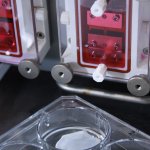
For decades now, the Fraunhofer Institute for Organic Electronics, Electron Beam and Plasma Technology FEP has been developing processes and systems for cleaning, sterilization, and surface modification. The newly in-house developed process, called SULEEI, makes it possible to sterilize (S) and preserve decellularized pericardial tissue by means of photo-initiated ultraviolet (U) crosslinking…
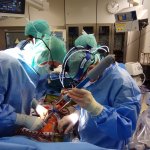
Patients with the rare Loeys-Dietz syndrome suffer from aortic enlargement which may result in sudden over-expansion and a fatal aortic tear. In order to prevent this from happening, an aortic prosthesis must be implanted. A team of vascular surgeons at the University Hospital of Zurich was one of the first in the world to risk undertaking this life-saving operation on a child as an emergency…
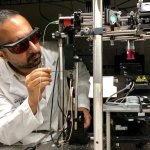
Cancer treatment could be dramatically improved by an invention at the University of Waterloo to precisely locate the edges of tumors during surgery to remove them.
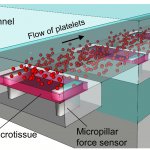
Blood clotting is one of the most critical, protective processes in human physiology. When something goes wrong with clotting, either because there is too much clotting, leading to a stroke, or not enough, leading to internal bleeding, the outcome can be catastrophic. Now, University at Buffalo researchers have established an in vitro model of this process that will help clinicians improve…
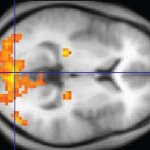
In a new study, led by the University of Glasgow, scientists show that brain activity recorded using functional magnetic resonance imaging (fMRI) may help predict response to CBT in depression before the treatment commences. The advances could help patients receive the most appropriate treatment for depression in a timely manner.

For patients with kidney failure who need dialysis, removing fluid at the correct rate and stopping at the right time is critical. This typically requires guessing how much water to remove and carefully monitoring the patient for sudden drops in blood pressure. Currently there is no reliable, easy way to measure hydration levels in these patients, who number around half a million in the United…
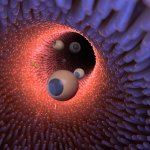
Targeting medical treatment to an ailing body part is a practice as old as medicine itself. A Band-Aid is placed on a skinned knee. Drops go into itchy eyes. A broken arm goes into a cast. But often what ails us is inside the body and is not so easy to reach. In such cases, a treatment like surgery or chemotherapy might be called for. A pair of researchers in Caltech's Division of Engineering and…
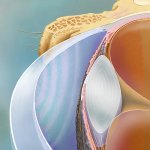
Our eyes – considered by many to be the windows to the soul – need constant care, and as we age, they sometimes also need significant repair. The panes of these windows – the corneas – are transparent tissues that have been the focus of some of the oldest and most common transplantation surgeries. Now thanks to researchers in Kyoto, some such transplants may become even safer. The team,…
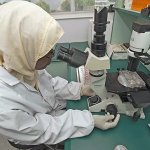
The World Health Organisation's (WHO) Essential Medicines List and List of Essential Diagnostics are core guidance documents that help countries prioritize critical health products that should be widely available and affordable throughout health systems. Now, updated versions of the two lists have been published, focusing on cancer and other global health challenges, with an emphasis on effective…